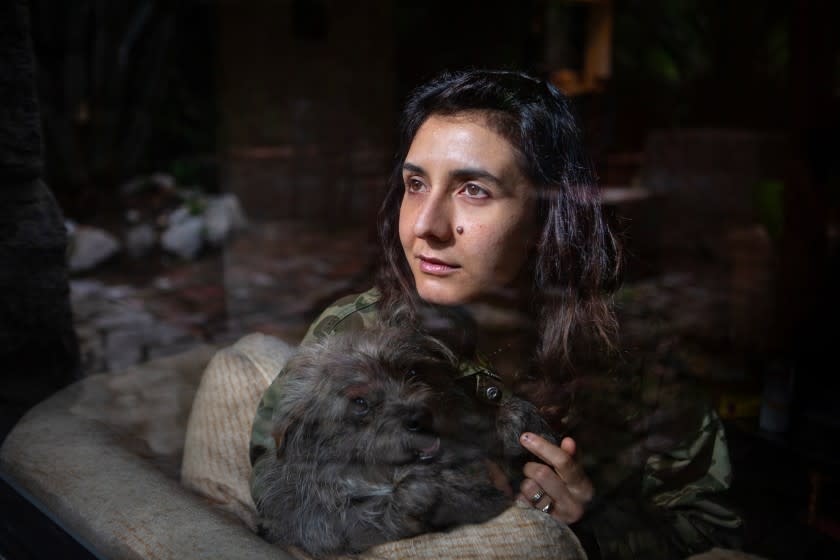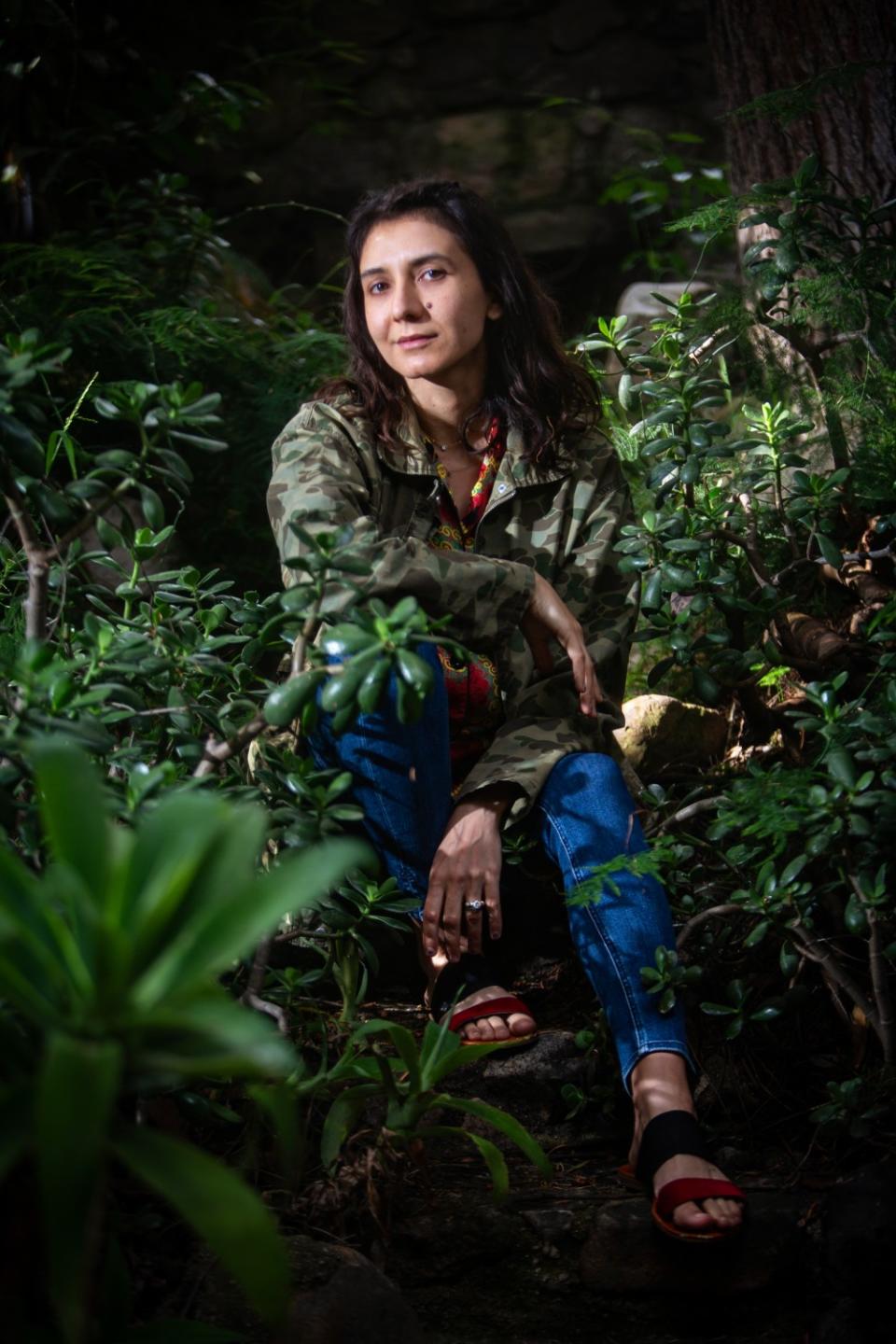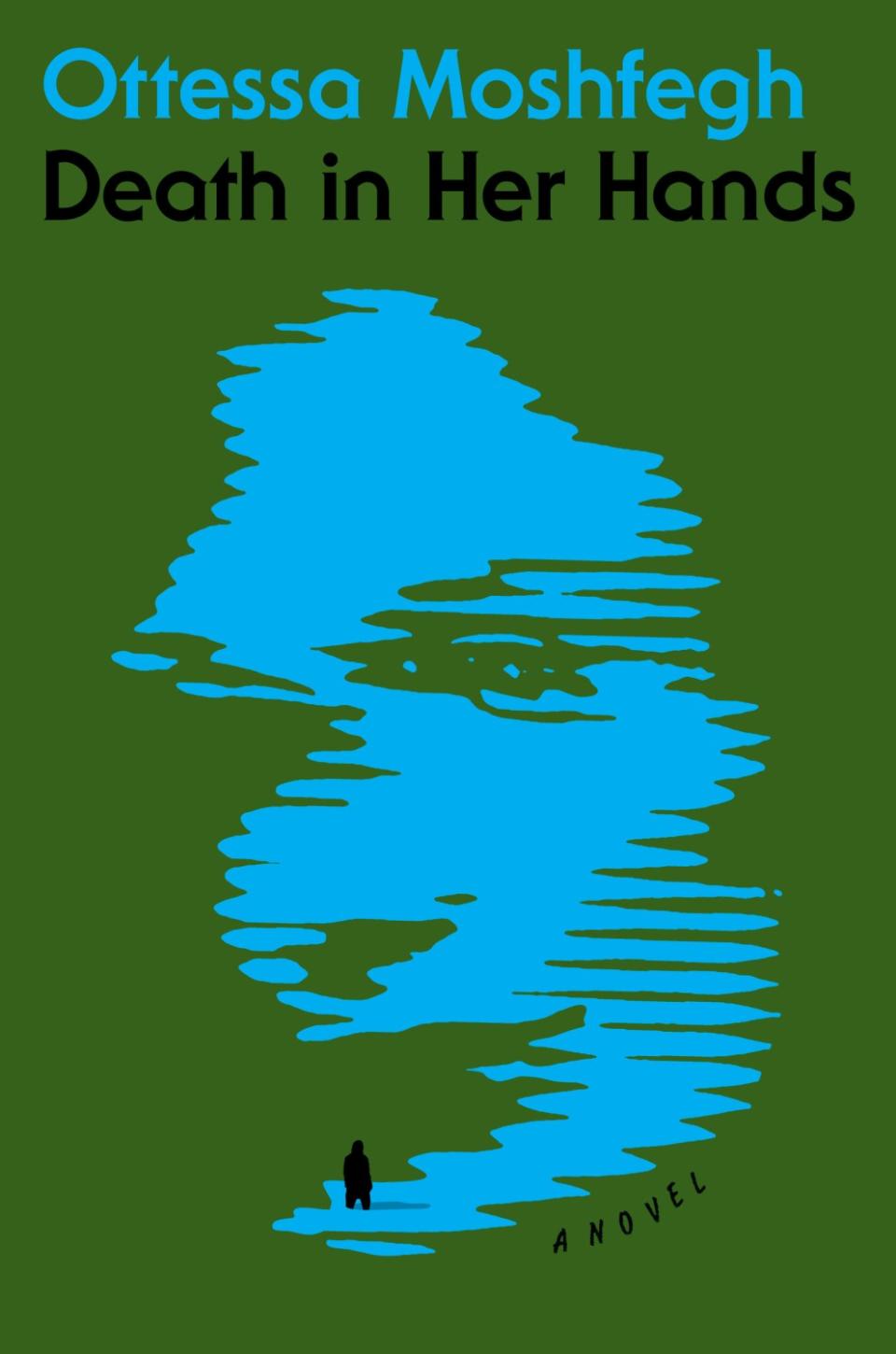You're probably wrong about Ottessa Moshfegh

I first met the novelist Ottessa Moshfegh a little over a week into quarantine, in a small park in Pasadena not far from where she lives. We talked first across the social distance of a hiking path and then, when it started raining, on the phone from our two parked cars.
In retrospect it was touching to have thought at the time that this scene would hold its tension, maybe even gain in eloquence and meaning, over the months that followed. Instead it only seems banal. Then again, maybe that faded novelty is more in line with Moshfegh’s most consistent theme, which appears once more in her forthcoming novel, “Death in Her Hands”: that even radical personal change cannot cleanse our lives of ourselves.
The author of four previous books, Moshfegh is 39, dark-haired and dark-eyed, a little bit guarded in a way that seems sensible, and very plainly intelligent. She has the air that some writers acquire after finding success (and some before, no doubt) of finishing her sentences at exactly her own pace, in a way that verges on inattention to others, or else implies close attention. When we distance-met, one of the first things she told me was that she’d been watching “Miss Americana,” the Netflix documentary about Taylor Swift. “Probably a genius,” she said, after a moment’s consideration.
Which roughly sums up the consensus about her too. Moshfegh grew up in Massachusetts, the daughter of musicians, and accumulated a blue-chip writer’s pedigree: Barnard, an MFA from Brown, a Stegner Fellowship at Stanford. Her 2015 novel “Eileen,” a northeastern noir told from the perspective of a woman looking back on her wretched early adulthood, was shortlisted for the Booker Prize. But it was 2018’s brilliantly acidic, wounded “My Year of Rest and Relaxation” — about a beautiful young woman who, in an abyssal depression, decides to confine herself, drugged, to a New York apartment — that made Moshfegh a force of cultural cool, the writer to take with you to a park bench in Eagle Rock or Bedford-Stuyvesant.
What marks both novels is the deep internal ferocities at work in their first person narrators — both outwardly at least relatively normal, but in truth almost completely isolated, in real contact with only one or two people and arguably better off without those. Thrown back upon themselves, they live within their bodies in a way that slowly comes to seem profound, registering their appetites, their excretions, their skin itself so impassively that it becomes almost a relief, a candor we didn’t know we needed, that paramount feeling of fiction: other people, too.

An author who disappears so far into her lead characters can be tricky to read as a person. “It’s always weird,” Moshfegh said of reading a recent profile of herself. “There’s this entity that’s not me but is of me and fashioned by someone else. I feel the psychic weight of that. It feels bad. It feels uncomfortable.”
Her caution is understandable. Much of Moshfegh’s public persona seems to have emerged from a 2016 profile in the Guardian, in which she talked about buying a how-to guide to write “Eileen,” called her novella “McGlue” “an astonishing book,” and said, “There are all these morons making millions of dollars, so why not me? I’m smart and talented and motivated and disciplined and … talented: did I say that already?”
Depending on their regard for her work, people tend to read those quotes as either ridiculous or rightly self-assured. What neither interpretation captures is Moshfegh’s equivocal tone when you meet her in person, the disavowal that lurks behind both any praise she has for her own work and any criticism she makes of it. And of course, there’s the entire life recessed behind her public-facing moments — her marriage to a fellow writer, Luke Goebel, her recent dive into the novels of Anne Tyler, her research for future work (a ghost story set in San Francisco, maybe).
Her friendships, in particular, where many of her characters can falter, have a devoted quality. “One of the things about which she cares is friendship,” the novelist Rachel Kushner told me. “She’s a person of deep integrity.” The curator and journalist Kristine McKenna said that when she needed physical help after a medical procedure, it was Ottessa she called. McKenna added that not long ago Moshfegh had flown across the country to spend a week with a friend in a similar bind.
There were moments in our conversations when I caught sight of the version of the author who’s alienated some people and appealed to others. Her disdain for social media (“a writer using Twitter is sacrificing something sacred”) has an aristocratic high-handedness to it, for example, as if, having crested the peak of literary fame, she can’t conceive of there having been a different outcome: the system worked, and anyone still out hustling for Goodreads followers is one of its deserving losers. Yet there are likely a handful of writers of Moshfegh’s exact age and gifts who, for whatever reasons — socioeconomic, almost invariably — haven’t had her success. Different things might seem sacred to them.
But those flashes are rare, and mostly Moshfegh seems extremely serious about the work she’s made. That’s the main reason she hates the occasional depiction of her as a dilettante. She used the how-to book for “Eileen” as a structuring tool, she says, not because she wanted to make money, and only after years of working patiently at her craft. “I was very naive,” she said about the Guardian profile, which created the easy template for how to write about her. “He came over, drank my tea, used my bathroom, talked to me like he was really trying to do a good job.”
I told her it was hard to imagine a young male writer being scrutinized so ruthlessly for the qualities of ambition and honesty. “I hope you write that,” she said. Then she added, with the sharpness that marks her writing, “My only other option was to pretend to be an insecure shivering idiot.” She’s right. Literary culture demands a personality test of women that few men have to take, and especially of women who write frankly about women’s experiences, making them seem somehow answerable to readers, available, in a way that (to pick another first-person novelist more or less at random) someone like Richard Ford never has been.
“I was really upset by that profile,” Moshfegh told me. She paused. “I think it will last for the rest of my life.” She’d said earlier that there’s still a ring-shaped stain on her coffee table where the writer from the Guardian set down his mug of tea.

Moshfegh wrote “Death in Her Hands” in 2015, before editing it for publication last year. (Some of her time has been given over to screenwriting projects, one of them an adaptation of her own work.) It will be the third novel she’s published that’s narrated by a woman in solitary flight from the past, in this case Vesta Gul, a widow of 72 living in a lakeside cabin. On a walk with her dog, she finds a note that reads, “Her name was Magda. Nobody will ever know who killed her. It wasn’t me. Here is her dead body.” There’s no body with the note, however, and “Death in Her Hands” becomes a teasing exercise in judging Vesta’s sanity.
Another character at home alone: It’s not hard to convince yourself that Moshfegh intuited something untenable about the way we live long before this quarantine. Or indeed, that maybe the writers we elevate as a culture aren’t random but have grabbed hold of some imminence in our lives, a new part of reality still yet to fully appear.
“When Ottessa knows things, she knows them,” Kushner told me. “She knows when she’s right.” The observation stuck with me. Technical elements of Moshfegh’s books can misfire — Vesta Gul is a widow: vestigial; why do writers do this? — but never the voice. There, the credibility is total. Before we hung up, Kushner mentioned that Moshfegh had recently ordered her a jumpsuit she saw online. When it arrived, it fit perfectly.
I spoke to Moshfegh again in the sixth week of quarantine, long after our first conversation. “I had a resurgence of the enormous gravity of all this,” she said. “This terror sort of regurgitating — repeating on me.”
There were echoes of her various characters, including Vesta, in that, particularly in the language drawn from the body. But then she added, perhaps surprisingly, that she thought the whole experience might make people value their ability to be together. “You’ll have spent all this time communing with yourself. And it could push you further into delusion, or it could get you reconnected with something that might not be, you know, Kim Kardashian’s line of shapewear.” She paused. “I watch YouTube a lot. They make these corsets that are like leotards, she and her sisters.”
I laughed. For the first time it felt like the energy of her fiction had come alive in our conversation, and in the same moment I saw why she might be inclined to conceal it. Her writing is vulnerable, and not in the devalued present currency of the personal essay — more like an admission, from a very reluctant source, about how trivial and vaguely ashamed and distinctly real each of us is, residing as we do in the permanent solitude of our selves.
Finch's novels include the Charles Lenox mysteries.

